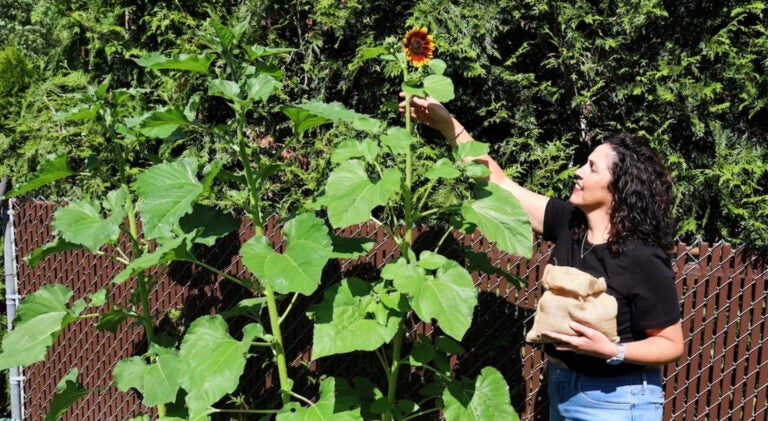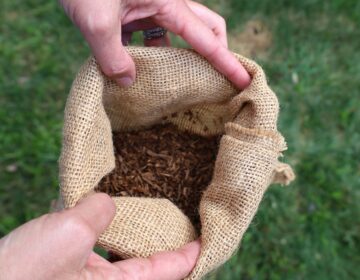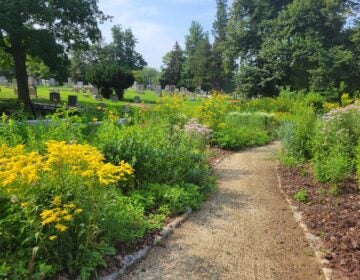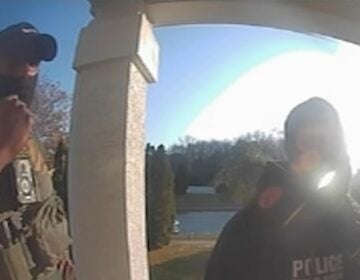New Jersey legalizes human composting as alternative to traditional burial
It's now the 14th U.S. state to legalize natural organic reduction. The legislation, which takes effect next year, allows funeral homes and facilities to offer the service.

File - A woman uses soil remains of her mother to grow sunflowers at her home. (Sarah Mueller/WHYY)
This story originally appeared on 6abc.
New Jersey has become the 14th state in the United States to legalize natural organic reduction, a process commonly known as human composting, offering families a new option for death care.
The legislation, signed into law last week, will allow funeral homes and facilities in New Jersey to offer the service locally within the next 10 months. Until now, residents seeking this alternative had to transport remains to states where the practice was already legal, such as Washington and Oregon.
Dianne Thompson-Stanciel of Tinton Falls chose natural organic reduction for her husband, Ken, who died in February at age 90. A former Air Force serviceman and minor league baseball player for the Chicago White Sox, Ken had expressed his desire to avoid a traditional funeral.
“I don’t want to be in a cemetery underground, and I don’t want to be burned,” Thompson-Stanciel said.
Because the process was not yet available in New Jersey, Ken’s body was sent to Earth Funeral, a facility in Washington state that specializes in human composting.
“Each person is laid into one of those vessels with wildflowers and other organic material like mulch, and then the process gets to work,” said Haley Morris, head of policy at Earth Funeral. The company is now considering expanding to the East Coast, with New Jersey on its radar.
The New Jersey Funeral Directors Association collaborated with lawmakers to develop the legislation.
“We’ve done rigorous research with the companies that are doing natural organic reduction on the West Coast with other industry experts to make sure they’re really implementing the law correctly,” said Samantha Link, director of government affairs for the association.
Thompson-Stanciel said she sees her husband’s presence in a houseplant that has flourished since she added compost made from his remains.
“He wanted me to get rid of it,” she said. “It was the first plant I put compost in right away. And you know that plant is standing up to the ceiling. So he may not have liked it, but he’s here to save it.”
The state will oversee licensing and regulation of facilities offering the service, giving funeral directors and companies time to prepare before the law takes effect.
WHYY is your source for fact-based, in-depth journalism and information. As a nonprofit organization, we rely on financial support from readers like you. Please give today.






